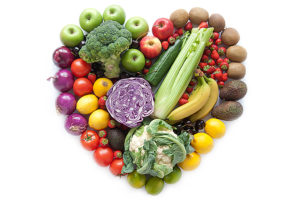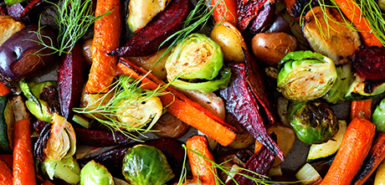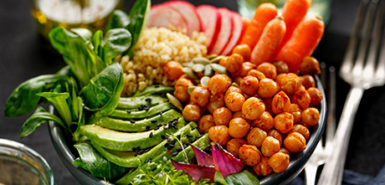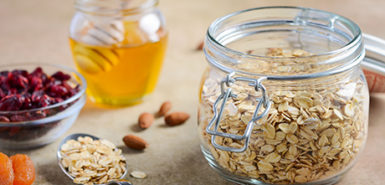
There are plenty of buzz words and phrases out there when it comes to health and nutrition.
One phrase you may have heard lately is “clean eating.”
Ever wonder what this really means? Let me explain.
For most, clean eating refers to more of a lifestyle rather than a diet.
Fitness magazine defines it like this: “At its simplest, clean eating is about eating whole foods, or ‘real’ foods—those that are (unprocessed) or minimally processed, refined, and handled, making them as close to their natural form as possible.”
In today’s busy world, convenience is king, which can make eating clean challenging. However, there are multiple benefits to this way of eating, including weight management, increased energy, improved skin and better digestion.
So, how do you do it?
Here are some tips for cleaning up your diet:
Avoid highly processed foods
Highly processed foods are those that often contain excess sodium and sugar. Think frozen dinners, high-sugar cereals, potato chips and cookies.
One way to tell if a food is highly processed: There’s a long list of ingredients that are difficult to pronounce.
Next time you want to reach for a candy bar for an afternoon lift, consider making your own energy balls at home.
Increase your fruits and vegetables
Keep in mind that just because a food comes in a bag or package, it doesn’t necessarily mean it’s bad for you. For example, baby carrots and spinach leaves come in a bag, and they’re packed with vitamins and minerals that nourish your body.
To make clean eating more affordable, choose fruits and vegetables that are in season—and don’t forget to visit your local farmer’s market.
Dirty Dozen, Clean 15
If you’d like to buy organic but you want to keep it affordable, pay the extra money when it comes to foods containing a higher amount of pesticides.
These foods are known as the Dirty Dozen: strawberries, apples, nectarines, peaches, celery, grapes, cherries, spinach, tomatoes, sweet bell peppers, cherry tomatoes and cucumbers.
Foods that contain fewer pesticides are known as the Clean 15: avocados, sweet corn, pineapples, cabbage, frozen sweet peas, onions, asparagus, mangos, papayas, kiwis, eggplant, honeydew melon, grapefruit, cantaloupe and cauliflower.
Focus on healthy fats
There are two types of trans fat. One is found naturally in foods, such as meats and dairy, and the other is artificially made and found in fried foods, baked goods and margarine.
The artificial trans fats are the ones to avoid, as these can increase your risk of heart disease, stroke and Type 2 diabetes.
Instead, focus on healthy fats, which can decrease your risk of heart disease. These fats are found in eggs, nuts and nut butters, fatty fish, vegetable oils, avocados and flaxseed.
Pack the right protein
Choose meats, poultry and fish that are prepared by baking, roasting or grilling. Avoid anything that has been fried, such as chicken tenders or fried fish.
In addition, pass on meats that are highly processed and contain high amounts of sodium, such as hot dogs or frozen breakfast sausages.
If you choose deli meats, aim for the brands that do not contain nitrates and that contain the least amount of sodium.
Limit alcohol and sugary drinks
Clean eating not only refers to what we eat, but also what we drink. Avoid sugary beverages such as soda, shakes or high-sugar coffee drinks. Choose green tea or water instead.
Not usually a water drinker? Try adding berries, oranges, lemon, limes, cucumbers and mint for some natural sweetness.
Alcohol in the correct serving size can be good for our hearts, but in excess it can dehydrate and cause excess weight gain due to the extra calories. The American Heart Association classifies a serving as 12 ounces of beer, 4 ounces of wine, 1.5 ounces of 80-proof spirits or 1 ounce of 100-proof spirits.
So there you have it—clean eating doesn’t have to involve exhaustive planning and a rigorous adherence to rules.
By keeping some of these tips in mind, your body and mind will reap the benefits of a healthier, cleaner diet.
 /a>
/a>
 /a>
/a>
 /a>
/a>
Thank you for the article.
I found good tips for starting my healthy diet
Glad to help! Thanks for being a Health Beat reader!